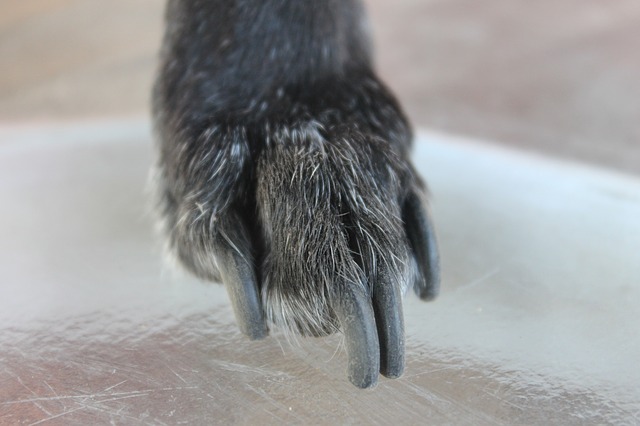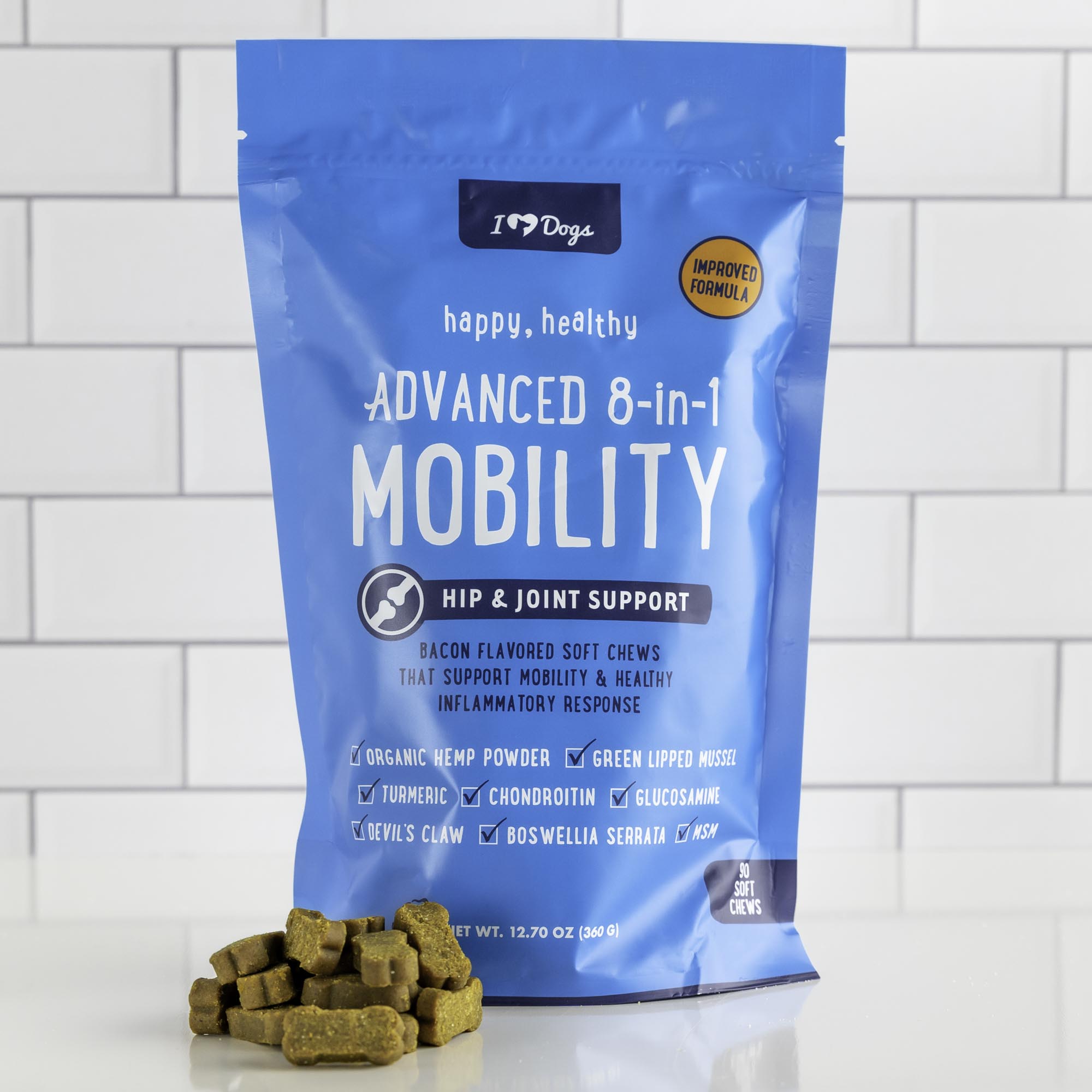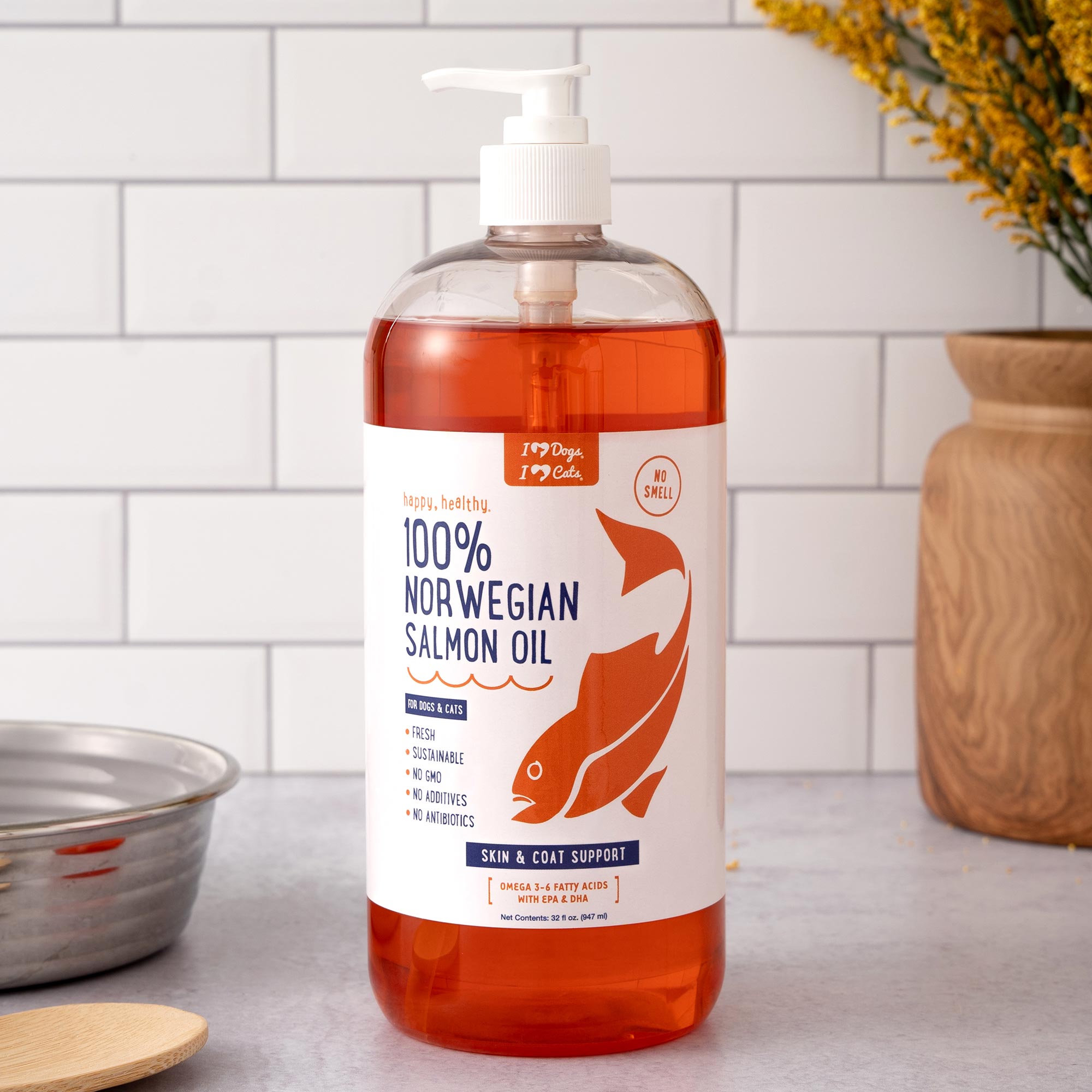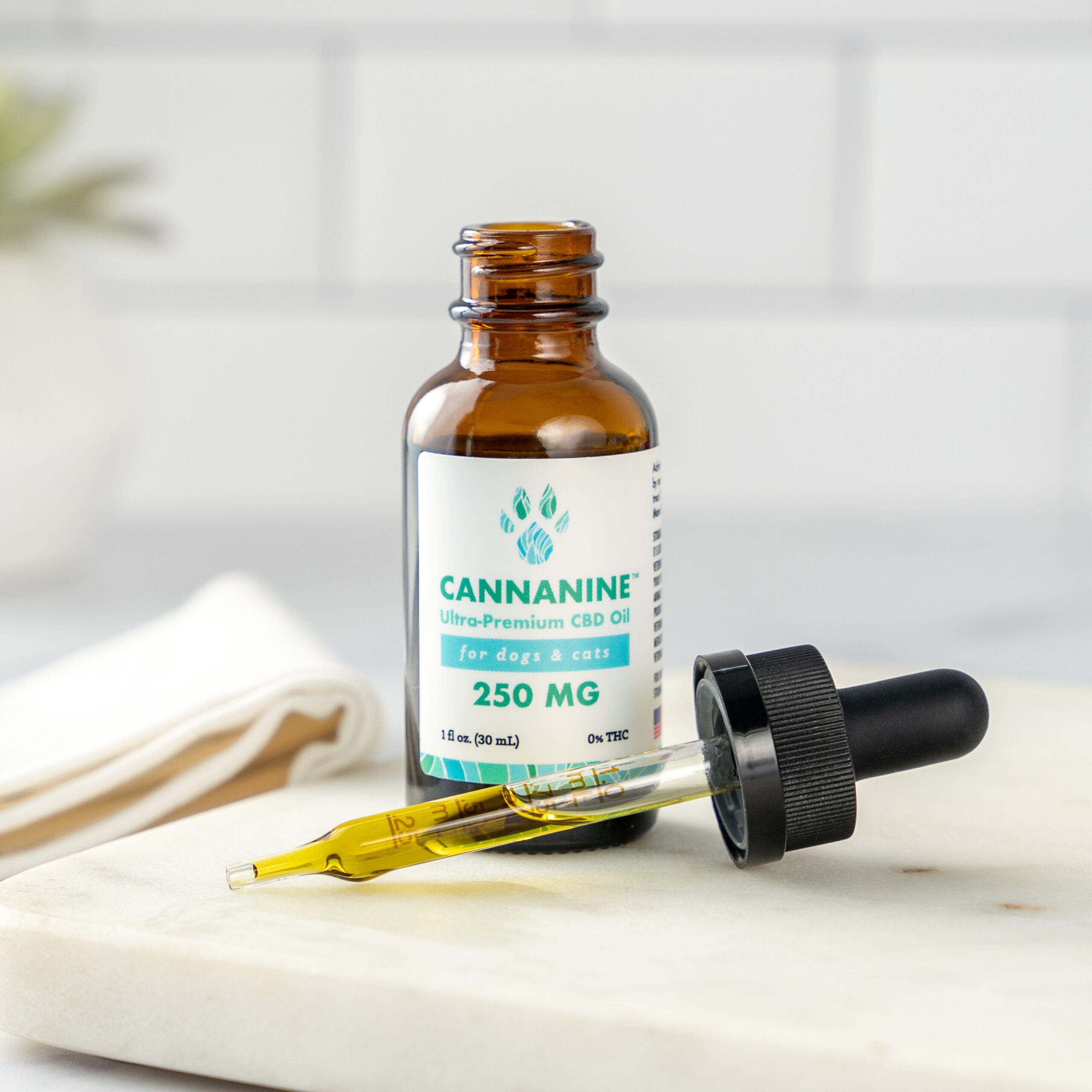Dog Home Pain Treatment: Stiff Joints, Neck, & Legs
Has your dog started to slow down as they’ve gotten older? If it takes them a little longer to get out of bed in the morning or if they’re sluggish on walks, they may be suffering from stiff, achy, and possibly arthritic joints. Yet, is it necessary to put them on a vet-prescribed medicine? Or are there things you can do for your dog or provide in their diet to ease the joint pain? So, what home remedy can you give your dog for arthritis?
You should still get a diagnosis from your vet to rule out more serious health conditions. Yet, there are many home remedies that may help improve your dog’s quality of life. Here are some tips.
Best Dog Joint Pain Home Remedy
Even small changes in your dog’s routine can help soothe your dog’s arthritis. Here are ten ideas that you can consider.
#1 – Maintain a healthy weight
Excess weight will put extra strain on your dog’s already aching joints. Use diet and exercise to reduce your dog’s weight if necessary. It’s okay to serve them less food than the bag recommends since most kibble brands make serving sizes high so you’ll buy more food.
#2 – Alter, but don’t eliminate, exercise
Staying active will help reduce stiffness in your pup’s joints. Yet, aging dogs will benefit more from several shorter walks throughout the day rather than one or two longer ones. Longer walks may be rough on already sore joints.

#3 – Raise food and water bowls
This is not recommended for dog breeds that are prone to bloat. Otherwise, having raised food and water bowls can help reduce strain in the back and neck caused by bending down to reach bowls on the floor.

#4 – Prevent slipping
Slipping on hardwood floors or icy sidewalks can put a lot of extra strain on your dog’s joints. Carpet runners or dog booties may help your dog maintain their footing. They can also reduce the amount of strain your dog puts on their joints just by walking around the house.
#5 – Use a ramp
It might be too difficult for your dog to hop into your car or onto your bed. Jumping can be extremely painful for dogs with joint problems, so ramps and stairs can make a big difference in your dog’s quality of life.
#6 – Keep nails trimmed
According to Whole Dog Journal:
“If nails are too long they can change the gait on the dog, causing skeletal changes and arthritis in the foot/toes.”
If your dog’s nails have been overgrown for quite a long time, they may not be able to be trimmed back very far without causing your dog to bleed. Weekly nail trims or grinding will be required to slowly get the quick (a vein in the nail) to recede to get your dog’s nails to a proper length.

#7 – Provide a soft, supportive bed
Sore joints need more cushion to be comfortable. Lying on the floor with little to no cushioning causes painful pressure points. Investing in a high-quality orthopedic bed may help your dog start their mornings with a little less pain.
#8 – Acupuncture
Acupuncture helps to stimulate the body’s own anti-inflammatory and pain-reducing responses. The tiny needles involved stimulate nerves, blood vessels, and lymphatic bundles to improve blood flow, release pain-fighting enkephalins, and reduce inflammation. While it may not be a great option for dogs who dislike being handled, it can be a great supplemental treatment program that may bring your dog a lot of pain relief.

#9 – Massage therapy
Canine massage therapy can help improve blood circulation, loosen stiff muscles, and provide relaxation. There are some techniques you can learn to do yourself. Yet, you may prefer to find somebody who has been nationally certified in canine massage and acupressure.
#10 – Homeopathy
According to Dog Guide:
“Dog homeopathy is the act of combining a blend of medicinal herbs which present no side effects with dogs.”
Homeopathy can be confusing to those who aren’t familiar with it. It may be best handled by an experienced holistic veterinarian.

Dog Pain Home food and supplement remedies that may help
If you’re wondering what home remedy you can give your dog for arthritis, you’re in luck! These ten foods and supplements will keep your canine feeling young and healthy.
#11 – Turmeric
Turmeric is a powerful antioxidant, which neutralizes the free radicals that cause painful inflammation and damage to joints. Some recent studies in human have suggested turmeric may offer relief similar to Advil/Motrin but without the long-term side effects. We love this canine turmeric supplement that tastes like a bacon flavored treat.
#12 – Licorice
According to Dogs Naturally Magazine:
“Licorice is a member of the pea family and it’s the root that has medicinal properties. One of its many uses is to treat arthritis. Many studies have confirmed that it’s a fast acting and effective anti-inflammatory agent. Some herbalists claim that its primary component, glycyrrhizin, increases the effectiveness of other herbs when it’s included in a compound formula. Glycyrrhizin’s chemical structure is similar to corticosteroids, but without the negative effects on the immune system.”
Licorice roots are commonly administered to dogs as a tincture or a tea. Of course, these healing properties are not true for candy licorice, which has a high sugar content, making it dangerous for dogs.

#13 – Ginger
Ginger is able to stop the nervous system from producing leukotrienes, which cause inflammation. Ginger can also improve circulation. Small amounts of raw ginger can be added to your dog’s food. Yet, it can be a blood thinner, so it should be avoided before surgery. It may also lower blood pressure or sugar levels, so talk to your vet before use if your dog has any health issues that may be negatively impacted by these possible side effects.
#14 – Yucca
Yucca provides relief from joint pain and inflammation in humans and seems to work the same in dogs. Powdered yucca may be added to your dog’s food, but it can cause stomach irritation and vomiting when used daily. So, it’s recommended to give your dog a 2-day break every week.

#15 – Feverfew
Feverfew is an herb with anti-inflammatory properties. For pets, it is commonly administered as a tincture or a tea.
#16 – Horsetail
Horsetail has the ability to heal bone and connective tissue thanks to its bioactive silicon, which aids in the formation of bone, cartilage, skin, and other connective tissues. It combines well with glucosamine and chondroitin supplements for optimal joint health. You shouldn’t give horsetail to dogs with heart problems or high blood pressure. It should also be avoided in nursing dogs.
#17 – Alfalfa
Alfalfa can help with arthritis and is safe to give every day. You’ll want to use alfalfa that hasn’t flowered yet. Also, avoid giving the seeds as they can cause blood disorders.

#18 – Glucosamine/chondroitin and MSM
These three nutrients are the go-to for most dog parents who start to observe wear and tear on their dog’s joints. Glucosamine, chondroitin, and MSM have all been shown to reduce inflammation in dogs with arthritis.
#19 – Omega-3 from Fish oil
Fish oil contains the fatty acids EPA and DHA, which are important components of cell membranes. They signal cells to decrease inflammation. Less inflammation means less pain, redness, swelling, and irritation of the skin, joints, and internal organs. We prefer a high quality fish oil from Norwegian Salmon, which is just about as pure as you can get.
#20 – Broad Spectrum Hemp Oil
In recent years, exciting clinical research has emerged about the properties of broad spectrum hemp oil for dogs. Many readers in our community have found great success using it along with more traditional supplements like glucosamine and omega-3.
Broad spectrum hemp oil is available in an oil format, or can be given as a chew as well.
Hopefully you’ve found a few helpful answers to, “what home remedy can I give my dog for arthritis?” in this list. These remedies can be helpful in your quest to improve your dog’s quality of life!
These statements have not been evaluated by the Food and Drug Administration. This product is not intended to diagnose, treat, cure, or prevent any disease. The information on this website is not intended to replace a one-on-one relationship with a qualified health care professional.
Frequently Asked Questions:
Arthritis makes dogs’ bones, and joints hurt and reduce mobility. Dogs need their joints to move so they can walk, run, jump, chase, etc. When they have joint pain, their quality of life goes down, and they can become sad or anxious. Learn how to help your dog naturally to relieve their symptoms and live a fuller life, including the best supplement for their unique needs as canines.
How Can I Relieve My Dogs Joint Pain Naturally?
The best way to relieve your dog’s arthritis and joint pain starts with a whole-natural diet. Most dog foods come filled with preservatives and fillers that can reduce their health. Dogs need foods high in protein, healthy fats, and nutrients, not grains or other fillers they do not eat in the wild. Improving your dog’s diet as a whole will make them healthier and help with pains like inflammatory arthritis pain that can be hard to treat.
Next, regular exercise is a must for good health for your family pooch. With the right food and exercise, you can help your dog get to the right weight. Exercise will also keep those joints flexible, so they will not stiffen up from lack of use.
Supplements are a necessity for dogs’ health to ensure they get the nutrients they need, like glucosamine and antioxidants, to improve joint movement. It is easy to add supplements to your dog’s food, and they often come in treat forms dogs love. Glucosamine and antioxidants are necessary supplements for smooth joint movement.
What Human Medicine Can I Give My Dog For Joint Pain?
In general, there are some medicines that both people and dogs can take, like antibiotics and some heart and thyroid medicines. But even if a certain human medicine is safe for dogs to take, the dose will not work for both humans and dogs. Always check with your dog’s vet before giving them any human medicine, as most (such as pain relievers) can lead to internal bleeding and organ failure in dogs.
What Human Anti-Inflammatory Food Is Safe For Dogs?
Any animal in the wild can eat anything that grows in the wild that they naturally do not avoid. But not all foods that grow in the wild are safe for dogs, just like not all foods that grow in the wild are safe for people or other animals like bears. Grains can cause inflammation in dogs, just like it can in people. Many dry dog foods on the market have fillers like corn bran, grain by-products, soy, peanut, cottonseed, or rice hulls, and modified corn starch. Nightshade veggies (for example, tomatoes) have glycoalkaloids, a chemical that can cause inflammation, muscle spasms, aches, and stiffness all over the body if eaten often.
After looking at the list of foods your dog should not eat, you may be wondering what he or she can eat. There are a lot of whole foods that can help your pet’s arthritis pain if you feed them often. These include celery, alfalfa, ginger, mango, papaya, blueberries, and kale. Pet owners can blend these fruits and vegetables together to make a juice or smoothie and feed it to their dogs every day.
What Is The Best Natural Pain Killer For Dogs?
Cannanine hemp oil acts as a natural pain reducer, among many other benefits. It is great for dogs who have trouble moving around, staying calm, or who have allergies. Since CBD is a known anti-inflammatory, it can be very helpful for dogs with arthritis, hip or elbow dysplasia, or who are recovering from sprains, strains, or torn ligaments. Make sure to get a hemp oil made specifically for pets to give them the correct dosage.
What Is A Home Remedy Anti-Inflammatory For Dogs?
A few home remedies beyond heat and ice can help to reduce inflammation at home. Dogs rarely sit still for a heat pack to work, nor do they enjoy a bubble bath in Epsom salt the way a human would. However, if you can get your dog to soak in the tub with Epsom or dead sea salts, you could notice some improvement for a short time. Magnesium creams may help, too, so long as your pup does not lick them off!
Turmeric serves as a great method of reducing inflammation naturally. The active ingredient curcumin works magic for animals and humans alike. However, it’s especially good for dogs who have pain or inflammation. You will also want to keep an eye out for signs that your dog’s stomach is upset since this ingredient may upset the digestive system and cause nausea or diarrhea.
Both dogs and humans have glucosamine in their bodies. It’s a natural compound used to help reduce inflammation pain by lubricating joints. This chemical helps make the building blocks of cartilage, making it easier for the protective connective tissue around bones to break down. Further, it’s often taken with chondroitin sulfate, a sugar-based compound that helps the joints deal with stress.
CBD, which stands for cannabidiol, and hemp oil are both made from the marijuana plant but without the psychoactive THC. As mentioned above, it helps to fight inflammation while also reducing pain and stress. Dogs can enjoy life better with this natural and safe pain reliever.
What Can I Give My Dog For Joint Pain And Inflammation?
The right supplements, you can reduce inflammation and speed up the process. With the Advanced 8-in-1 Mobility Chew, your dog will be back on his feet in no time! It is the best mix of eight powerful, natural ingredients that work together to make joints healthier, reduce pain, and make people more active. Your dog will feel less pain and stiffness because this natural pain reliever can reduce inflammation, help cartilage grow back, and keep joints lubricated.
What Can You Give Dogs For Arthritis Over-The-Counter?
Avoid giving your dog anything over-the-counter besides supplements made specifically for dogs. Always take your dog to the veterinarian if you want to try something, especially something designed for humans.
Can I Give Anything To My Dog For Pain?
Your veterinarian can prescribe pain relievers for your dog that are designed and dosed for canines. The right prescription will reduce pain and inflammation for a short amount of time but can have side effects with long-term use. Do not self-prescribe medicines for your pup, as it can have serious side effects.
What Are Natural Muscle Relaxers For Dogs?
Chamomile makes for a powerful muscle relaxant for dogs while also reducing pain and promoting sound sleep. People use the herb as a tea to help with skin irritation and stomach problems as well. It’s perfectly safe and natural for dogs and cats too.
Dogs can also take the herb valerian root for mental health, calming nerves, and getting rid of insomnia. The calming effects of valerian roots can help a dog who is always in pain go to sleep while helping their muscles to relax and prevent spasms.
Arnica, a small herb, can help with pain too. This herb is best for healing wounds and widening blood vessels. Arnica helps relieve pain, spasms, bumps, or sprains in dogs when applied to the skin by improving the lymphatic system. However, keep the doses small as the whole-herb arnica can be poisonous if eaten, so do not let your dog lick the treatment because that will cause internal bleeding, so use a cone.
Is Apple Cider Vinegar An Anti-Inflammatory For Dogs?
Because it has anti-inflammatory properties, apple cider vinegar is known to help relieve joint pain caused by inflammation, common in older dogs with arthritis. The anti-inflammatory properties of apple cider vinegar may help dogs with muscle and joint pain. This is especially good news for people who own older dogs, who are more likely to feel this kind of pain because of their age.



 Toledo, United States.
Toledo, United States.